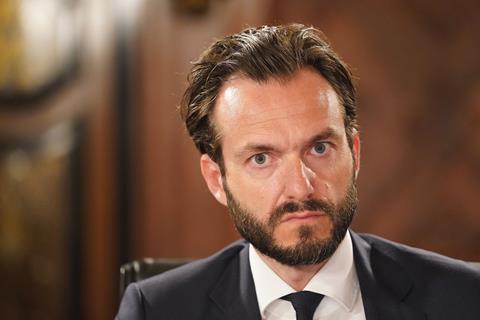The European Convention on Human Rights (ECHR) and other international treaties have become a serious risk to national security, the former defence secretary Ben Wallace said this week.

‘If there was an Isis plot in some Central African country’, Wallace told the Telegraph, ‘under international law we have the right to take action with or without permission from the host nation. But we couldn’t capture the bad guys: we could only kill them.’
This seems unconvincing. It might prove impossible to have terrorists extradited from lawless countries once they had surrendered to British special forces. If they were willing to surrender, though, it would not have been lawful to kill them.
Wallace was not calling for the UK to leave the ECHR, he explained. But Robert Jenrick, the immigration minister, said last month that the government would do ‘whatever is required’ to tackle the problem of small boats crossing the English Channel – even if that meant pulling out of the convention.
Would that lead to the UK’s expulsion from the 46-member Council of Europe, which enforces the ECHR through the human rights court in Strasbourg?
‘My legal view on that question is yes,’ a former president of the court told me this week. But Robert Spano (pictured) said it would ultimately be a political decision for the member states, acting through their committee of ministers.

The interview, on stage at the Law Society, was sponsored by Gibson Dunn, the international law firm that Spano joined as a partner after retiring from the court last year.
We began by discussing the legal status of interim measures, issued by the Strasbourg court in urgent cases under its rule 39. In June 2022, one such measure was granted to prevent the UK sending asylum-seekers to Rwanda. But Professor Richard Ekins KC (hon), in a paper published this summer by the thinktank Policy Exchange, had said: ‘The Strasbourg court has no authority to grant interim relief and member states of the convention have no obligation in international law to comply with rule 39 rulings.’
That was incorrect, Spano told me. The human rights court had repeatedly decided that interim measures were binding in international law.
But a single judge had no authority to rule against a member state, argued Ekins. Court rules required at least three judges to sit.
‘It may sound logical, but that’s not the case,’ Spano replied. The interpretation of treaties is governed by the Vienna Convention of 1969. ‘You cannot look at the ECHR or any international treaty through the lens of a national lawyer, adopting a very textualist approach to the convention.’
It is not widely known that the Rwanda interim measure expired in February. But surely another judge in Strasbourg would grant an asylum-seeker a fresh order if the government persuades the Supreme Court next month that Rwanda is a safe third country?
‘Not necessarily,’ replied Spano. The case might be considered by a chamber of seven judges. Unlike the duty judge last year, they would have the benefit of a ruling on the human rights issues from the Supreme Court. Spano did not want to speculate but he clearly thought his former colleagues would pay attention to what judges in the UK had decided.
Given the way the Rwanda case had played out in the High Court and the Court of Appeal, the Strasbourg judge seemed to have been right to hold the ring. But the interim measure had provoked a heated debate within the Conservative party on pulling out of the ECHR.
Spano did not want to be drawn on politics. Instead, he offered a perspective from his new role as an international business lawyer.
‘Many of our clients in this field, who are often multinational companies, actually have a stake in this debate,’ he said.
‘For them, a situation in which a founding member state of the Council of Europe actively begins a process of withdrawal from one of the pre-eminent treaty-based regimes in Europe would be considered, to some extent, a negative evaluation of the rule of law orientation of the country in question. And we all know that trade and business and our economies are built on trust and certainty.’
Perhaps the strongest arguments against leaving the convention is that it would not achieve the government’s aims. ‘There would still potentially be a violation of other international obligations,’ Spano explained – such as the torture convention, the refugee convention and the International Covenant on Civil and Political Rights.
And the same concerns would apply to the Illegal Migration Act 2023. Section 55 purports to let ministers and courts ignore some interim measures. But section 6 of the Human Rights Act 1998 requires ministers and courts to act compatibly with the ECHR.
How were the judges going to work that contradiction out? Very wisely, Spano didn’t offer an answer.
joshua@rozenberg.net































8 Readers' comments